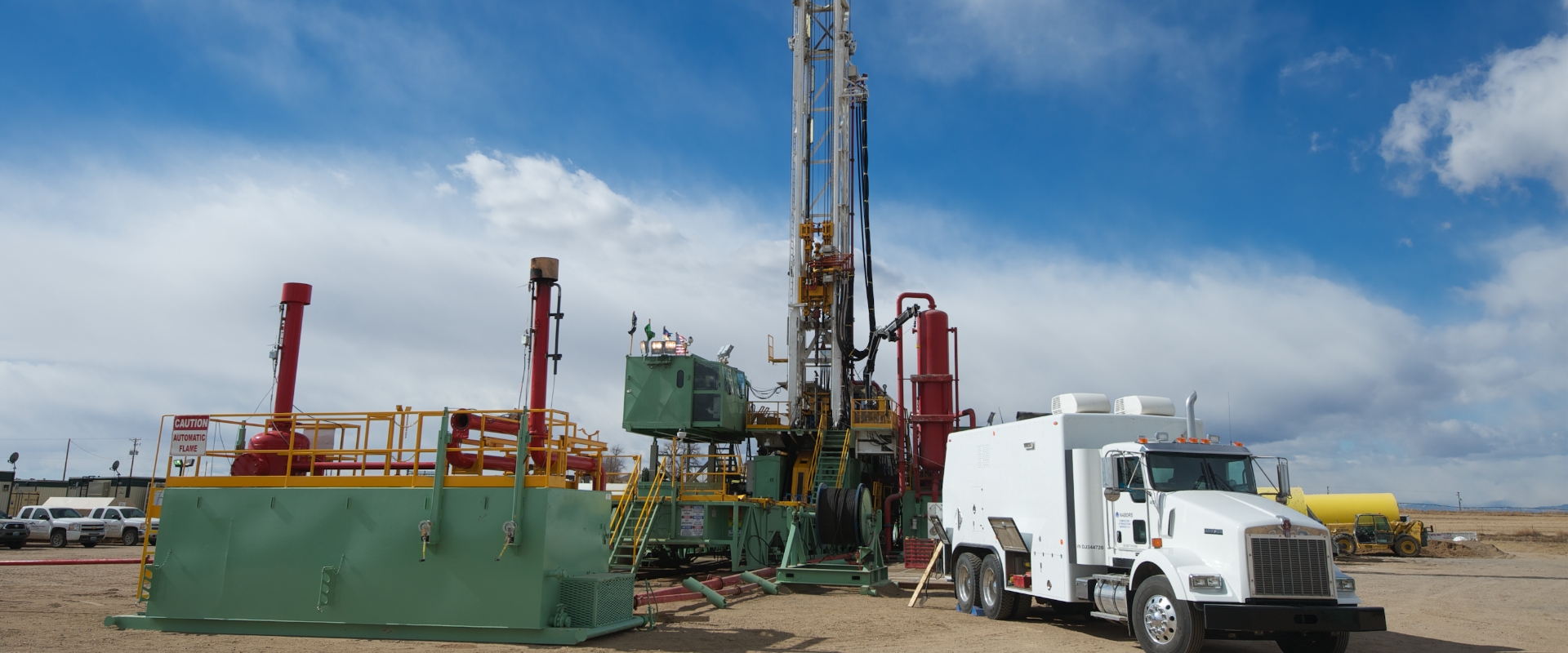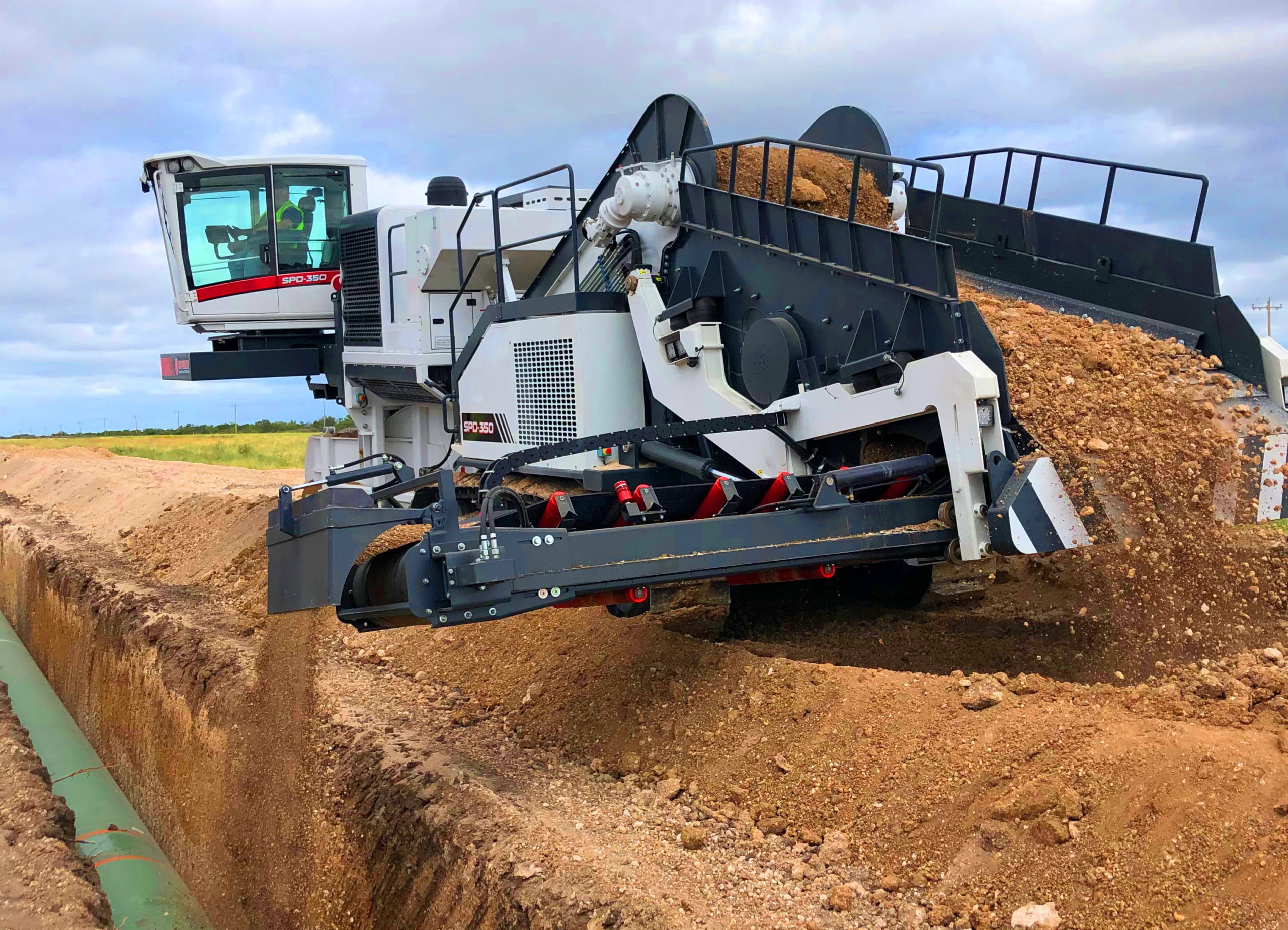Everything you should know about Superior Rentals reviews: ratings explained
Wiki Article
A Comprehensive Overview to the Various Types of Oil Field Equipment and Pipeline Equipment Available
The oil and gas market depends greatly on specific tools for reliable extraction and transportation. Different kinds of machinery, from drilling rigs to tank, play important functions in this intricate procedure. Each tool offers distinct functions that add to general operational success. Comprehending these parts is necessary for anyone included in the market. As the sector develops, so too do the modern technologies that support it. What innovations are on the perspective?
Drilling Rigs: The Foundation of Oil Expedition
Drilling rigs offer as the crucial equipment in the domain name of oil expedition, making it possible for companies to gain access to hydrocarbon reserves hidden deep under the Planet's surface area. These rigs come in different types, including land rigs, offshore rigs, and mobile units, each made to operate in certain settings. Equipped with innovative technology, drilling rigs can pass through geological developments with precision, making certain efficient source extraction. The architectural integrity and functional capabilities of these rigs are important, as they should hold up against extreme problems and considerable stress. The choice of an exploration gear impacts the overall project price and timeline, making it an essential factor to consider for oil firms looking for to enhance their exploration efforts and maximize productivity in their operations.Pumps: Necessary for Liquid Motion
In the oil removal process, the duty of pumps is substantial, assisting in the motion of liquids throughout various stages of production. Pumps are crucial for carrying petroleum, water, and other liquids from underground tanks to the surface and after that via pipes to refineries. They can be found in numerous kinds, consisting of centrifugal, favorable displacement, and completely submersible pumps, each offering particular purposes based on the liquid attributes and functional demands. Centrifugal pumps are frequently used for their efficiency in high-flow applications, while favorable displacement pumps master handling thick fluids. The choice of pump influences total performance, operational safety and security, and maintenance prices. Correct selection and upkeep of pumps are important for optimizing manufacturing and reducing downtime in oil field operations.Valves: Managing Flow and Pressure

Shutoffs play a crucial role in taking care of the circulation and stress of liquids within oil fields and pipes. Numerous kinds of valves serve unique applications, each made to satisfy certain functions fundamental for reliable procedure - Superior Oilfield Rentals Texas. Understanding the qualities and uses these shutoffs is crucial for maximizing system performance and safety and security
Kinds of Valves
Important parts in oil area procedures, shutoffs play a critical role in controlling the flow and pressure of fluids within pipelines and equipment. Various sorts of shutoffs are used to satisfy the diverse needs of oil and gas production. Usual kinds consist of gate valves, which give a straight-line circulation and marginal pressure decline; globe valves, known for their throttling abilities; and ball shutoffs, recognized for their quick on/off control. Additionally, check valves protect against backflow, while butterfly shutoffs offer a lightweight service for regulating flow. Each shutoff kind is developed with particular materials and arrangements to withstand the harsh problems usually discovered in oil fields, making certain reliability and performance in procedures. Recognizing these types is vital for effective system management.Valve Applications and Features
While various kinds of valves serve distinctive functions, their primary applications focus on controlling circulation and pressure within oil and gas systems. Shutoffs such as gate, world, and sphere shutoffs control fluid motion, making sure peak performance and safety. Gateway shutoffs are frequently used for on/off control, offering marginal flow resistance. World shutoffs, on the various other hand, offer exact circulation policy, making them ideal for strangling applications. Sphere shutoffs are preferred for their quick operation and limited sealing capacities. Additionally, pressure safety valve are essential for stopping system overpressure, securing equipment honesty. On the whole, the suitable option and application of valves enhance functional effectiveness, making sure the trustworthy transportation of oil and gas through pipelines and processing facilities.Compressors: Enhancing Gas Transport
Compressors play a vital duty in the efficient transport of gas, ensuring that it moves smoothly with pipes over fars away. These devices boost the pressure of natural gas, enabling it to conquer rubbing and elevation changes more info within the pipeline system. Additionally, compressors facilitate the balancing of supply and need, accommodating variations in consumption and production prices. Numerous kinds of compressors are used in the market, consisting of centrifugal, reciprocating, and rotary screw compressors, each offering distinctive benefits based on the functional needs. Regular upkeep of these compressors is vital to optimize performance and lessen downtime, eventually contributing to a reputable gas transportation network. Their vital function underscores the significance of compressors in the overall oil and gas infrastructure.Storage Tanks: Safe and Efficient Liquid Management
Effective transportation of gas depends on various sustaining systems, one of which is the appropriate administration of tank. These storage tanks play a vital role in safely containing liquids, making certain that functional effectiveness is kept while minimizing ecological risks. Built from resilient materials, they are made to endure high stress and harsh elements. Appropriately sized and tactically situated, tank help with the smooth circulation of gas and various other fluids, stopping traffic jams in supply chains. Normal maintenance and monitoring are vital to identify leakages or structural concerns, advertising security and conformity with governing requirements. Eventually, the efficient administration of tank is crucial for the total honesty and integrity of the oil and gas sector's fluid handling systems.
Pipeline Systems: Framework for Transport
Pipeline systems serve as the foundation of the oil and gas industry, promoting the reliable transport of hydrocarbons over large ranges. These systems are composed of different elements, including pipelines, valves, pumps, and compressors, all diligently made to guarantee seamless flow. The materials made use of in pipeline building, commonly steel or high-density polyethylene, are selected for resilience and resistance to rust. Pipeline networks can span across land and water, linking production websites to refineries and distribution. Additionally, progressed innovation allows real-time surveillance of circulation rates and stress degrees, enhancing operational efficiency. The critical placement of these pipelines minimizes environmental effect while maximizing resource availability, thereby playing a vital function in conference energy needs globally.Safety And Security Equipment: Making Sure Worker and Environmental Security
The procedure of pipeline systems, while crucial for power transport, likewise presents substantial security obstacles for employees and the atmosphere. Safety devices plays a considerable function in alleviating these risks. Individual safety devices (PPE) such as headgears, gloves, and non-slip footwear safeguards employees from physical threats. Furthermore, gas discovery systems check for leakages, guaranteeing that harmful compounds do not pose a risk to personnel or the bordering community. Emergency shutdown systems are vital for quickly stopping procedures throughout a crisis, preventing potential disasters. Spill control products, consisting of absorbents and obstacles, are basic for reducing ecological impact. In general, purchasing all-inclusive safety and security devices is vital for maintaining functional stability and securing both workers and the setting in the oil and gas sector.
Regularly Asked Concerns
Just how Do I Choose the Right Oil Field Equipment for My Task?
Picking the best oil field devices involves assessing task specs, budget plan restraints, and operational needs. Think about aspects such as devices dependability, compatibility with existing systems, and the supplier's online reputation to guarantee peak performance and security.What Are the Upkeep Requirements for Oil Field Equipment?
Maintenance requirements for oil field devices consist of regular examinations, lubrication, and timely fixings. Operators must additionally stick to supplier guidelines, screen performance metrics, and assurance compliance with safety and security policies to enhance durability and efficiency.
Just How Can I Ensure Conformity With Environmental Laws?
To assure compliance with environmental regulations, business must perform routine audits, apply ideal methods, purchase training, maintain proper paperwork, and stay updated on legislation (Superior rentals squeeze tools). Collaboration with environmental companies can also boost adherence to regulationsWhat Is the Typical Lifespan of Pipeline Equipment?
The ordinary lifespan of pipeline tools normally varies from 20 to half a century, relying on factors such as worldly quality, ecological problems, and upkeep practices. Routine inspections can substantially influence durability and operational performance.Just how Do I Securely Transport Oil Field Equipment to Remote Locations?
Transporting oil field equipment to remote locations calls for cautious preparation, including course assessment, securing authorizations, using proper cars, and guaranteeing safety procedures are followed. Appropriate training and communication amongst teams are crucial for successful transport.Report this wiki page